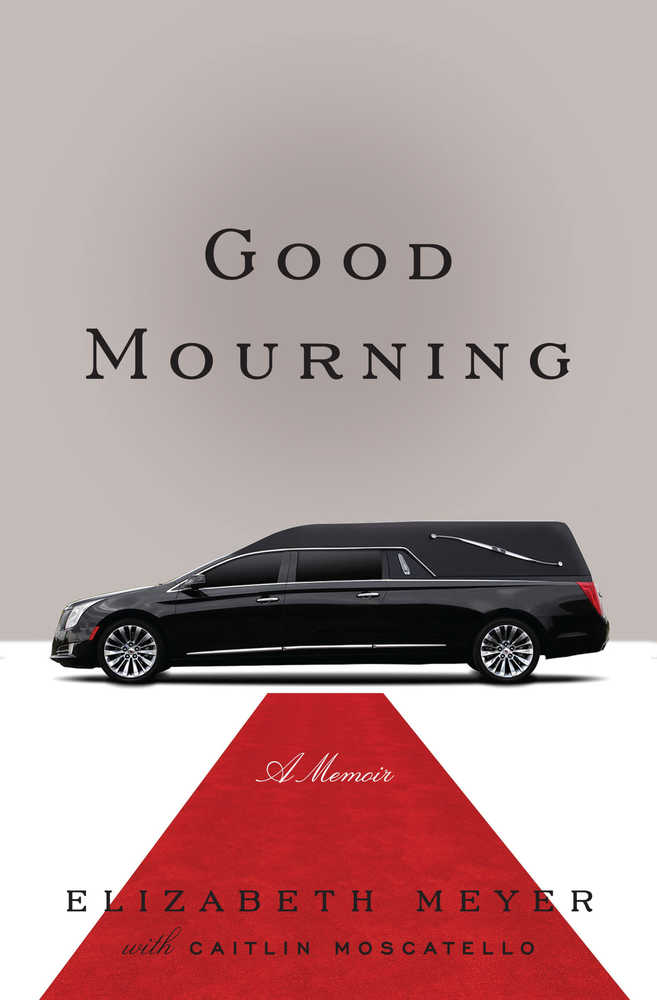Love what you do, do what you love.
That’s always good advice, no matter your age. Carpe diem; life is not a dress rehearsal; and if you love your job, you’ll never work a day in your life. You’ll be happier, too, even if you really don’t have to work – as you’ll see in “Good Mourning” by Elizabeth Meyer.
Milan, Paris, London, Palm Beach. As the daughter of a high-powered lawyer-to-the-rich, Elizabeth Meyer was accustomed to the best restaurants, the best shopping and, yes, the best travel destinations. But travel behind a hearse? No way.
And yet, after her beloved father’s death, that’s where Meyer was and, once the shock subsided, there was one thing she couldn’t forget: though the family had utilized the services of Manhattan’s most prestigious funeral home, she’d pulled out all her party-throwing, event-organizing skills to ensure the send-off her father deserved.
The funeral home hadn’t done it. She had, and so, some time after her grief eased, she marched into the funeral home, requested a meeting, and asked for a job. She knew the funeral homes’ clientele; she’d attended social affairs, private school, and charity events with them all her life. She knew what they demanded. She didn’t need money; she needed something to do.
Despite what she knew, however, there was still plenty to learn and Meyer absorbed everything she was taught: embalming, casket ordering, planning, and the business side of things. Working with the dead and their families turned out to be the “calling” that she’d been searching for – even though her friends and family thought she was going through a phase and they tried to talk her out of it.
But their talk fell on deaf ears. Meyer was happy – until she wasn’t. Until the corporation and the funeral home’s culture became a problem. Until Meyer began to think that “there just had to be a better way to do death.”
Here’s an interesting mash-up: take Six Feet Under, add a subscription to Vogue and a hefty bank account, stir in a tony New York address, and sprinkle on some attitude. What you’ll get is “Good Mourning,” and a few eye-rolls.
By diving into a world that few – society mavens or not – desire, and by questioning why that’s so, author Elizabeth Meyer proves that she’s not your usual Society Girl. Of course, we’re served tales of the rich, famous, cheating, lying, generous, and regretful… but as Meyer ponders death, the afterlife, and the role of religion in both, we also peek at the profound.
Conversely (here come the eye-rolls), there were too many I-don’t-need-the-money protestations scattered here and there, and some not-so-subtle reminders of Meyer’s station in life in this memoir. That she came from money was plenty obvious and quite belabored.
Still, it didn’t take long for me to brush aside that swagger and enjoy this book, and if you need something thought-provoking, yet light and fresh, I think you’ll like it, too. Put “Good Mourning” on your to-read list… because life is not a dress re-hearse-al, either.
The Bookworm is Terri Schlichenmeyer. Email her at bookwormsez@gmail.com.

